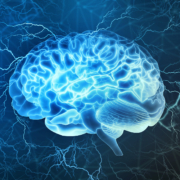How social connections can improve brain health
Social connection is a fundamental human need, as essential to survival as food, water, and shelter. It’s also critical to brain health.
One of the missions of the National Academy of Neuropsychology (NAN) is to make facts about brain health available to as many people as possible. Our recent quick tips video spotlights the importance of social connection to brain health and healthy living.
The video can be found on the new Brain Health Hub section of the NAN website.
The video opens with some sobering facts. Loneliness and social isolation are considered epidemics by the US Surgeon General. Some surveys have found that one in two American adults—especially younger adults—report experiencing loneliness. A lack of social connection has been considered as dangerous as smoking up to 15 cigarettes a day.
The good news? We humans can change and increase our social activity over time. Three aspects of social connectedness seem to matter most: 1) the number and variety of relationships in our lives, 2) how often we interact with others, and 3) how satisfying our relationships and interactions with others are. In addition, science has shown us that developing meaningful friendships, nurturing them, and maintaining regular contact with friends and family members can stimulate our brain, reduce stress, and slow decline in our thinking skills.
Put differently, having meaningful connections, including having supportive listeners in our lives, matters.
Not only does it feel good to share a difficult day with a supportive friend, but it also helps preserve our thinking abilities. If you’re not very socially active, it’s a good idea to consider ways to become more active, such as reaching out to a friend for a coffee meet-up, joining a hiking or walking club, joining a book club, or volunteering in your community.
Having a socially active lifestyle has physical benefits too, such as a lower risk of heart disease and a better chance of living longer.
We all need positive social relationships for our brain health. Remember that a little kindness, a friendly chat, staying connected with those we already know, and embracing new connections can do wonders for our brains.









